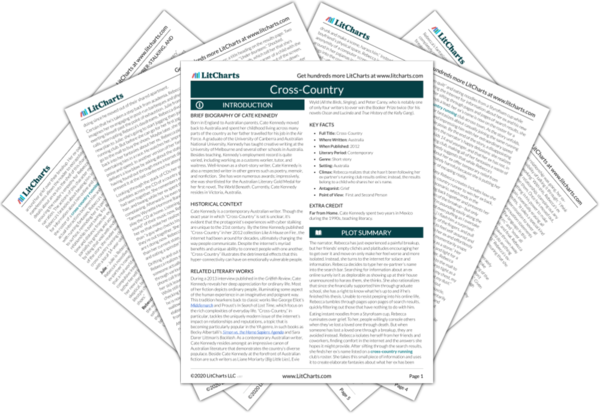The Internet, Cyber-Stalking, and Privacy
Cate Kennedy’s short story “Cross-Country” explores a particular way the internet can affect relationships after they end: cyber-stalking an ex-partner. Through the use of first- and second-person narration, the narrator and protagonist, Rebecca, makes the reader complicit in her online stalking. She makes it seem inarguable: anybody would Google their ex after a bad break-up. By positing cyber-stalking as just the uglier side of human nature, Rebecca makes her actions seem innocuous rather than…
read analysis of The Internet, Cyber-Stalking, and PrivacyFantasy and Self-Delusion
In Cate Kennedy’s “Cross-Country,” Rebecca’s daydreams about her ex-partner offer a form of escapism from her grief. In the wake of the breakup, she is deep in a depressive episode, swaddled in her “spare-room quilt” and eating noodles from a Styrofoam cup while scouring the internet for information about her ex and his new life. After sifting through pages and pages of search results, she finally finds a lead: her ex’s name is now…
read analysis of Fantasy and Self-DelusionBreakups and Grief
In “Cross Country,” Cate Kennedy explores how grief can play out after the end of a relationship. Denoting feelings of deep sadness, grief is most commonly associated with the sorrow one experiences after a loved one passes away. However, Kennedy expands that typical association to include the pain of losing a loved one through a breakup. After Rebecca’s partner leaves her, she feels further isolated by her friends who offer her cheap platitudes for…
read analysis of Breakups and Grief







